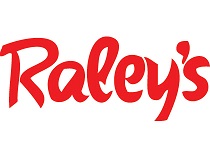
Headquartered in West Sacramento, Calif., Raley’s owns and operates 132 stores in California and Nevada, including those under the Bel Air Market, Nob Hill Food and Food Source banners. With an estimated $3.2 billion in sales for the fiscal year ending on June 28, the grocery chain is ranked number 42 in Supermarket News’s list of the “Top 75 North American Food Retailers and Wholesalers for 2014.”
Placing it squarely at the forefront of natural food trends and greater demand for traceable goods, Raley’s has curated a list of 83 ingredients that will no longer be acceptable for inclusion in products sold in its stores. According to sources close to the matter, Raley’s has informed current suppliers of the new guidelines, and while existing products carried by the chain are currently exempt, the company has “put vendors on notice to change.”
The list is similar to that of Whole Foods’ “Unacceptable Ingredients for Food,” which includes 78 ingredients commonly used by food and beverage producers, including artificial colors, high fructose corn syrup and sucralose, as well as a number of preservatives, such as sodium benzoate. Also listed are potassium bromate (often used as a leavening agent), azodicarbonamide and brominated vegetable oil (BVO), each of which has been the subject of recent controversy regarding potentially harmful food additives.
There are, however, a few significant differences between the two lists. Unlike Whole Foods, Raley’s will no longer stock food products that are made with genetically modified organisms (GMO). While Whole Foods last year issued an edict declaring “full GMO transparency” in its stores by 2018, the natural grocer will continue carry products made with GMOs. And though Whole Foods is well-known for its policy of selling meat, poultry and fish that are raised without the use of antibiotics, Raley’s explicitly names antibiotics as being banned for use in any products that it sells.
Raley’s has also prohibited the use of bST, rbST bGH, rbGH, each a widely used bovine growth hormone that is injected into dairy cows to boost milk production, from supplier products. Foie gras, forbidden in Whole Foods, is not on Raley’s list, however most of its stores are in California, which already has a state-wide ban on the sale of the fatty duck and goose liver.
At press time, Raley’s has yet to reply to BevNET’s call for elaboration on the new guidelines.